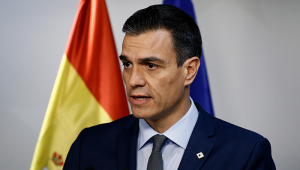By Nick Mann | 6 June 2012
The Group of Seven leading nations yesterday pledged to monitor progress being made towards ‘financial and fiscal union’ in Europe, as Spain’s prime minister gave his support for a European banking union and eurobonds.
Finance ministers and central bank governors from the G7 discussed the global economic situation as part of preparations for the Group of 20 summit being held in Los Cabos, Mexico on June 18-19.
A statement issued by the US Treasury, which chairs the ministers and governors’ group, said: ‘The G7 ministers and governors reviewed developments in the global economy and financial markets and the policy response under consideration, including the progress towards financial and fiscal union in Europe. They agreed to monitor developments closely ahead of the G20 summit in Los Cabos.’
Their comments came as Spanish prime minister Mariano Rajoy joined the European Commission in advocating closer monetary union between EU member states, and the eurozone in particular.
Speaking in Spain’s upper house of Parliament, Rajoy said European countries needed to make a clear commitment to ensuring the survival of the euro. With indications that Spain could require support for its ailing banks, he also reminded the house that the European Central Bank had indicated liquidity into the banking system before, in August 2011.
‘Europe needs to say where it is heading in order to provide security, it needs to say that the euro is an irreversible project and that the euro is not at risk,’ Rajoy said.
‘It needs to support those in difficulty and, in my opinion, it needs fiscal integration – through a fiscal authority – and banking integration, a banking union – through the eurobond, with a supervisor and a European deposit guarantee fund.’
Moves towards closer fiscal union in the eurozone received a boost on Friday when Ireland’s voters comfortably backed the country’s membership of the EU fiscal compact. In total, 60.3% of votes cast in last Thursday’s referendum were in favour of Ireland signing the fiscal treaty that sets legally binding budget deficit limits for members of the single currency.
This morning, the European Commission published draft EU rules for bank recovery and resolution, focusing on three key principles – prevention, early intervention and resolution. The rules would make crisis management more robust and prevent banking problems spreading from one institution to another, the commission said. This would avoid a repeat of the bailout of banks by governments between October 2008 and October 2011, which cost around €4.5 trillion.
European internal market commissioner Michel Barnier said: ‘The financial crisis has cost taxpayers a lot of money. Today's proposal is the final measure in fulfilling our G20 commitments for better financial regulation.
‘We must equip public authorities so that they can deal adequately with future bank crises. Otherwise citizens will once again be left to pay the bill, while the rescued banks continue as before, knowing that they will be bailed out again.’













